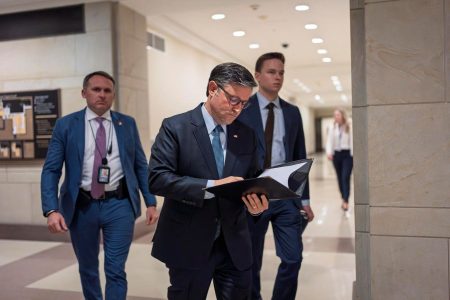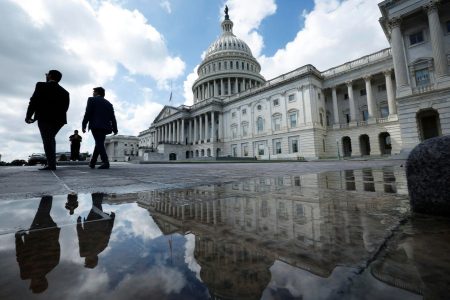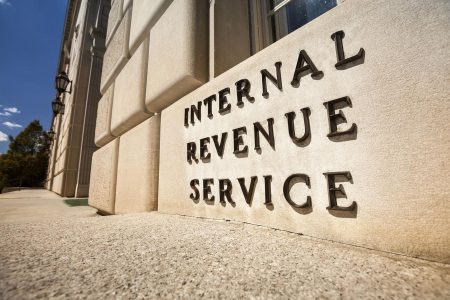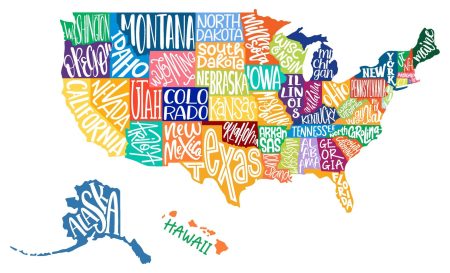Authorities in Singapore are fielding many questions as the country recovers from its largest money laundering scandal ever — an SGD 3 billion (about $2.2 billion) caper that has rocked Singapore’s reputation and ensnared some of the world’s largest banks.
It’s a tale that seems scripted for television. The story started over a decade ago in the Philippines, where a group of 10 fraudsters ran an illegal offshore gambling operation targeting Chinese gamblers. The fraudulent casino operators stashed their cash in Singapore, where they routed their ill-gotten gains through cryptocurrencies, gold, luxury cars, and real estate.
Credit Suisse and Citigroup Inc. held a significant portion of the ring’s assets, as did Julius Baer Group Ltd., Standard Chartered PLC, and Bank of Singapore, among other banks (“The Banks That Hold the Money in Singapore Laundering Scandal,” Mint, June 8, 2024). Authorities arrested the group in August 2023 and quickly confiscated its assets.
None of the 10 fraudsters is Singaporean, but the island city-state — to the chagrin of its authorities — provided the perfect backdrop for the syndicate. That’s because Singapore is one the world’s largest wealth management centers. In 2022 alone, its asset managers handled nearly SGD 5 trillion, and more than three-quarters of that money originated offshore. With so much capital flowing through one small island, is money laundering simply a cost of doing business?
Singaporean authorities don’t think so. In the wake of the scandal, they decided to do some housekeeping. They assessed the country’s money laundering vulnerabilities and released those findings last month in a dense, 126-page report (Monetary Authority of Singapore, “Money Laundering Risk Assessment Report: Singapore 2024” (June 20, 2024)). It turns out that the largest money laundering threats include cyber-based fraud, organized crime, and cross-border tax crime, according to the assessment.
Those findings came as no surprise because, according to the report, Singapore is “inherently exposed” as a wealth management hub. The authorities are concerned about the volume of fraudulent proceeds funneling through their country. Over the years, Singapore’s Financial Intelligence Unit and its law enforcement agencies have noticed that tax-related criminal proceeds, as well as those tied to corruption and trade-based money laundering, are being “layered” through the jurisdiction.
This is happening mostly through shell companies and front companies but also through trusts. However, the money doesn’t stay in Singapore very long; it’s quickly transferred to other jurisdictions, the report said.
The authorities are also concerned about the role that financial intermediaries — like trust or company service providers and asset managers — are playing in these complex schemes, especially in enabling laundering of foreign tax crime proceeds.
Singaporean authorities aren’t alone in their concern. Foreign governments are increasingly asking Singaporean officials to turn over information that could help them investigate tax offenses, the risk assessment said.
Lawmakers want to aid those investigations. In early July, the Parliament swiftly introduced legislation, Bill No. 20/2024, that should make it much easier to prosecute money laundering, especially cross-border offenses, even when authorities can’t fully trace the money trail to its original source. Historically, that has been very difficult to do.
The difficulty is that Singaporean law requires prosecutors to demonstrate how laundered money is directly tied to specific criminal acts. If the criminal activity occurred in a foreign country, prosecutors must show the complete money trail from the point where the foreign crime was committed to the point the money was deposited with the launderer. That can be nearly impossible when the money passes through several jurisdictions.
Under the July bill, prosecutors would not need to prove a direct link between foreign criminal conduct and the monies that are allegedly laundered in Singapore. All the prosecution will have to do is prove beyond a reasonable doubt that the money launderer knew or had reasonable grounds to believe that he was dealing with criminal proceeds.
The bill will also allow the Inland Revenue Authority of Singapore and Singapore Customs to share tax data and trade data with Singapore’s Financial Intelligence Unit and the Suspicious Transaction Reporting Office tied to the Singapore police (Press release, Singapore Ministry of Home Affairs, “Anti-Money Laundering and Other Matters Bill,” July 2, 2024).
As the government wrestles with its exposure to money laundering, it wants to depend more heavily on international cooperation, according to the risk assessment. And it’s safe to say that for Singapore, cross-border information exchange is deeply important, perhaps more important than it has been in recent years.
It’s also safe to say that information exchange is important for the entire Asia-Pacific region. Last year the Asia/Pacific Group on Money Laundering investigated how tax crimes and money laundering are affecting the region. Along with the Australian Tax Office, it released the findings in a September 2023 report, “Money Laundering Associated With Tax Crimes in the Asia Pacific.” The report found that countries want to share information with each other, but they are encountering obstacles.
Over the past few years, the OECD Global Forum on Transparency and Exchange of Information for Tax Purposes has increased its focus on cross-border cooperation within the Asia-Pacific region.
In the recently released “Tax Transparency in Asia 2024: Asia Initiative Progress Report,” the forum explained that cooperation is growing but is imbalanced. Foreign jurisdictions are increasingly seeking data from Asian members of the forum, which means Asian countries are sending out more information than they are requesting. But in light of ongoing money laundering and cryptocurrency-related vulnerabilities in the region, it’s a dynamic that will have to become more equal, particularly if governments are serious about halting tax-related fraud.
A Year in Review
The Asia-Pacific region’s experience with the exchange of information on request (EOIR) standard in some ways mirrors that of two other regions within the global forum — Latin America and Africa. But in some respects, it is unique.
Seventeen of the global forum’s 22 Asian member countries belong to the Asia Initiative, a collective meant to address issues distinctive to those jurisdictions. According to the OECD report, the global forum identified at least €1.8 billion in additional revenues in 2023 thanks to the EOIR and the automatic exchange of information (AEOI) standards.
Like Latin American and African countries, Asian countries are using EOIR unevenly. Historically, a small handful of countries have accounted for much of the region’s EOIR activity. Between 2009 and 2023, five countries sent 91 percent of the region’s outbound EOI requests, according to the OECD report. That figure improved in 2023, when seven countries made 95 percent of the region’s requests.
However, given that the Asia Initiative has 17 members, that means fewer than half are using EOIR in earnest. That seems to be changing, as the report noted that some countries doubled their outbound requests over the past two years. Even so, it said, “there are still many Asian members which are not sufficiently using EOIR to support their tax investigations and audits.” The OECD said it will provide technical assistance to help with the problem.
One trend that is different from the global forum’s other regions, according to the report, is that Asian countries sent far fewer EOI requests in 2023 than they did in previous years. The 2023 figure was 22% lower than the number sent in 2022 and 11% below the average sent between 2009 and 2022.
The OECD says this could be a natural result of growth — as countries become more experienced with EOI, their requests and their cases become more targeted and efficient. Yet in other regions, EOIR numbers have historically grown as countries become more comfortable with the standard.
That said, Asian countries experienced a high level of inbound requests that other regions did not. In 2023 the number of inbound requests increased by a fairly hefty 32%, according to the OECD report. The higher volume of incoming requests could be affecting countries’ ability to send their own requests, but that will become clear only in future years with additional data.
The statistics are looking better for AEOI. In 2023 Asia Initiative members received 27% more information than they sent, and they received information on more than 51 million financial accounts covering assets of a total value of €3.7 trillion, according to the OECD report. Most Asian global forum members are using AEOI — 18 countries have committed to implementing it by a specific date, and 15 of those are already exchanging common reporting standard data via AEOI.
But receiving common reporting standard data is only one part of the battle. Automatically matching that data with domestic taxpayer databases is another. On average, Asia Initiative members achieved a 60% automatic match rate in 2023.
But on a country-by-country basis, matching rates oscillate between 36 and 94%, according to the OECD report. Improving those matching rates will be crucial as Asian governments turn their attention toward sophisticated fraud issues like crypto tax evasion.
Cryptocurrency Transparency
Crypto transparency is one of the next frontiers for the global forum. Six Asian members — Armenia, Hong Kong (China), India, Japan, Korea, and Singapore — have committed to implementing the cryptoasset reporting framework by 2027, according to the OECD report.
This will be an area to watch because cryptocurrency poses particular threats to the Asia-Pacific region. According to a January report from the United Nations Office on Drugs and Crime, “Casinos, Money Laundering, Underground Banking, and Transnational Organized Crime in East and Southeast Asia: A Hidden and Accelerating Threat,” illicit and underregulated cryptocurrency exchanges have become “foundational pieces of the banking architecture used by organized crime.”
Yet authorities still don’t know the true scope of illicit cryptocurrency activity. The U.N. report noted that regulators and law enforcement believe that cryptocurrency-related activity conducted by organized crime groups is “vastly underestimated.”
Expanding EOI to Indirect Tax
Another area to watch is reflected in one of the Asia Initiative’s core goals of using EOI to fight VAT and goods and services tax evasion and fraud cases. This is important for a few reasons. EOI targets direct taxes, meaning tax authorities don’t have to exchange information about VAT and GST.
However, the data is valuable for countries in the Asia-Pacific region that are grappling with missing trader and carousel fraud. Reducing that fraud is critical, considering that many Asian countries receive at least 20% of their tax revenue from VAT and GST, according to the OECD report.
The Asia/Pacific Group on Money Laundering’s report says that “the lack of a tax EOI mechanism covering these is a significant hindrance for cross-border GST or VAT investigations.” Asia Initiative members are discussing how they can better use EOI to help support each other in those investigations.
Read the full article here










